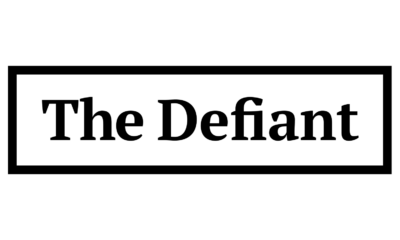News
EU set to ban and restrict some of crypto’s most popular features – DL News

- EU cracks down on private currencies and self-managed wallets as part of new anti-money laundering regime.
- The changes, including a ban on crypto mixers, are expected this week.
- DeFi, DAO, and NFT platforms, among others, will need to increase their due diligence on users.
Limit self-held wallet payments. Increase tracking of cryptocurrency transfers. Ban private cryptocurrencies.
These are three crucial changes that European Union lawmakers are expected to make this week as they complete a three-year process of updating the bloc’s rules on money laundering and terrorist financing in the financial sector.
What’s at stake
The European Commission, Council and Parliament are currently finalising the final details of this far-reaching regulation in a process known as trilogues.
Here’s what’s at stake for the crypto industry, based on draft bills and internal negotiation memos seen by DL News:
The Anti-Money Laundering Regulation, or AMLR, will work in tandem with the Markets in Crypto Assets Regulation, or MiCA. Parts of the latter are expected to come into force this year. The AMLR law’s effective date is still being negotiated, but it is expected to occur between 2026 and 2027.
For cryptocurrency advocates, the main challenge is to ensure that AMLR does not disrupt the regulatory clarity established by lawmakers in MiCA. Ideally, the two laws should work in harmony and establish clear rules for cryptocurrency businesses.
Unlike the confusing situation in the US, the EU has been praised by crypto industry leaders for presenting a clear new regime. But with every new law comes the risk of overburdening crypto businesses, especially startups and other self-funded businesses.
“Our main objective has been to ensure that the scope of AMLR does not exceed that of MiCA,” said Tommaso Astazi, head of regulatory affairs at Brussels-based lobby group Blockchain For Europe.
Join the community to receive our latest stories and updates
In both regulations, purely decentralized protocols are excluded. But MiCA-licensed crypto businesses — including some DeFi projects, DAOs, NFT platforms, and wallet service providers — all fall under its purview.
Anonymization tools
The AMLR law requires companies to strengthen the identification and monitoring of their customers’ transactions. In addition, the regulation targets anonymization tools.
Since the regulation was proposed in 2021, crypto lobbyists have fought to ensure that lawmakers do not scrutinize the industry more than other financial sectors.
It has not been easy amid scandals such as Binance Admission It violated U.S. law by failing to implement adequate controls against money laundering and terrorist financing.
Ahead of the next AMLR trilogue session on Wednesday, here are the main cryptocurrency issues on the table:
“Few people were willing to defend these privacy-enhancing tools.”
— Tommaso Astazi, Blockchain for Europe
The EU Council wants to ban cryptocurrencies that increase anonymity. These would include private cryptocurrencies such as Monero and Zcash.
“Not many people were willing to stand up for these privacy-enhancing tools,” Astazi said. Blockchain For Europe represents some of the largest cryptocurrency companies, including Binance, Coinbase and Kraken.
This year, cryptocurrency exchanges have target Privacy-focused coins. OKX has delisted several key privacy-focused trading pairs, Binance may delist them in the future as it has started monitoring them.
‘High-risk’ cryptocurrency mixers
The European Commission will have to present a report assessing whether to ban anonymous accounts offered by crypto service providers offering “high-risk” privacy wallets, as well as crypto mixers like Tornado Cash.
The commission and council have suggested the report be published three years after the laws come into force, potentially by 2027, but parliament hopes to push that back to two years.
Limits of the personal custody portfolio
The regulation would prohibit companies from offering anonymous accounts. Yet in response to crypto industry advocates, lawmakers amended the binding language that would prohibit companies from offering self-hosted wallets, which are run by individuals rather than commercial firms.
Parliament, however, wants to limit to €1,000 the amount that merchants are allowed to accept from self-hosted wallets without the intervention of a licensed cryptocurrency company. Any violation would result in sanctions.
Parliament also asks the Commission to report back to it on whether these provisions should be amended in three years’ time to adapt to European plans to roll out a digital identity framework.
According to a person familiar with the political process, the provision could be dropped because of resistance from the commission and council about its feasibility.
“The idea is that in a peer-to-peer environment, merchants should be able to accept crypto payments without having to rely on an intermediary. [like a crypto firm]” , Astazi said.
“In the future, we plan to develop technological solutions that will allow citizens and merchants to accept cryptocurrency payments through personal wallets, in a manner that complies with know-your-customer rules.”
Customer Due Diligence for All Cryptocurrency Payments
After Hamas’ attack on Israel on October 7, lawmakers rushed to stop terrorist organizations to use cryptocurrencies to fund their operations, particularly in light of reports that the Palestinian group was using digital assets to help fund its militants.
In November, the European Parliament proposed adding additional due diligence measures for companies handling cryptocurrency transactions below €1,000. Other forms of payment would not need these additional measures.
The rationale was that terrorist groups often use low-value transactions to conceal their financing practices.
Regulation, not directive
Cryptocurrency businesses in Europe must comply with previous EU anti-money laundering laws. To register with national authorities, cryptocurrency service providers must comply with AML standards.
But the current regulation is a directive, not a regulation. A directive means that each Member State can interpret and apply the rules in its own way.
This explains the large differences in the number of cryptocurrency business registrations in the EU. For example, the Czech Republic has almost 10,000 registered entities, while Belgium has none.
But a regulation is much stricter than a directive, and the laws will be applied more uniformly across the 27-nation bloc.
In addition, the EU’s anti-money laundering package establishes a new authority that will oversee the rules once they are adopted.
This article was updated on January 17 with more information on when AMLR will be implemented.
Got any tips on crypto in Europe? Contact the author at inbar@dlnews.com
News
Bitcoin soars above $63,000 as money flows into new US investment products

Bitcoin has surpassed the $63,000 mark for the first time since November 2021. (Chesnot via Getty Images)
Bitcoin has broken above the $63,000 (£49,745) mark for the first time since November 2021, when the digital asset hit its all-time high of over $68,000.
Over the past 24 hours, the value of the largest digital asset by market capitalization has increased by more than 8% to trade at $63,108, at the time of writing.
Learn more: Live Cryptocurrency Prices
The price appreciation was fueled by record inflows into several U.S.-based bitcoin cash exchange-traded funds (ETFs), which were approved in January this year.
A Bitcoin spot ETF is a financial product that investors believe will pave the way for an influx of traditional capital into the cryptocurrency market. Currently, indications are favorable, with fund managers such as BlackRock (BLK) and Franklin Templeton (BEN), after allocating a record $673 million into spot Bitcoin ETFs on Wednesday.
Learn more: Bitcoin’s Success With SEC Fuels Expectations for an Ether Spot ETF
The record allocation surpassed the funds’ first day of launch, when inflows totaled $655 million. BlackRock’s iShares Bitcoin Trust ETF (I BITE) alone attracted a record $612 million yesterday.
Bitcoin Price Prediction
Earlier this week, veteran investor Peter Brandt said that bitcoin could peak at $200,000 by September 2025. “With the push above the upper boundary of the 15-month channel, the target for the current market bull cycle, which is expected to end in August/September 2025, is raised from $120,000 to $200,000,” Brandt said. published on X.
The influx of capital from the traditional financial sphere into Bitcoin spot ETFs is acting as a major price catalyst for the digital asset, but it is not the only one. The consensus among analysts is that the upcoming “bitcoin halving” could continue to drive flows into the bitcoin market.
The Bitcoin halving is an event that occurs roughly every four years and is expected to happen again next April. The halving will reduce the bitcoin reward that miners receive for validating blocks on the blockchain from 6.25 BTC to 3.125 BTC. This could lead to a supply crunch for the digital asset, which could lead to price appreciation.
The story continues
Watch: Bitcoin ETFs set to attract funds from US pension plans, says Standard Chartered analyst | Future Focus
Download the Yahoo Finance app, available for Apple And Android.
News
FRA Strengthens Cryptocurrency Practice with New Director Thomas Hyun

Forensic Risk Alliance (FRA), an independent consultancy specializing in regulatory investigations, compliance and litigation, has welcomed U.S.-based cryptocurrency specialist Thomas Hyun as a director of the firm’s global cryptocurrency investigations and compliance practice. Hyun brings to the firm years of experience building and leading anti-money laundering (AML) compliance programs, including emerging payment technologies in the blockchain and digital asset ecosystem.
Hyun has nearly 15 years of experience as a compliance officer. Prior to joining FRA, he served as Director of AML and Blockchain Strategy at PayPal for four years. He established PayPal’s financial crime policy and control framework for its cryptocurrency-related products, including PayPal’s first consumer-facing cryptocurrency offering on PayPal and Venmo, as well as PayPal’s branded stablecoin.
At PayPal, Hyun oversaw the second-line AML program for the cryptocurrency business. His responsibilities included drafting financial crime policies supporting the cryptocurrency business, establishing governance and escalation processes for high-risk partners, providing credible challenge and oversight of front-line program areas, and reporting to the Board and associated authorized committees on program performance.
Prior to joining PayPal, Hyun served as Chief Compliance Officer and Bank Secrecy Officer (BSA) at Paxos, a global blockchain infrastructure company. At Paxos, he was responsible for implementing the compliance program, including anti-money laundering and sanctions, around the company’s digital asset exchange and its asset-backed tokens and stablecoins. He also supported the company’s regulatory engagement efforts, securing regulatory approvals, supporting regulatory reviews, and ensuring compliance with relevant digital asset requirements and guidelines.
Thomas brings additional experience in payments and financial crime compliance (FCC), having previously served as Vice President of Compliance at Mastercard, where he was responsible for compliance for its consumer products portfolio. He also spent more than seven years in EY’s forensics practice, working on various FCC investigations for U.S. and foreign financial institutions.
Hyun is a Certified Anti-Money Laundering Specialist (CAMS) and a Certified Fraud Examiner (CFE). He is a graduate of New York University’s Stern School of Business, where he earned a bachelor’s degree in finance and accounting. Additionally, he serves on the board of directors for the Central Ohio Association of Certified Anti-Money Laundering Specialists (ACAMS) chapter.
Commenting on his appointment, Hyun said, “With my experience overseeing and implementing effective compliance programs at various levels of maturity and growth, whether in a startup environment or large enterprises, I am excited to help our clients overcome similar obstacles and challenges to improve their financial crime compliance programs. I am excited to join FRA and leverage my experience to help clients navigate the complexities of AML compliance and financial crime prevention in this dynamic space.”
FRA Partner, Roy Pollittadded: “As the FRA’s sponsor partner for our growing Cryptocurrency Investigations and Compliance practice, I am thrilled to have Thomas join our ever-expanding team. The rapid evolution of blockchain and digital asset technologies presents both exciting opportunities and significant compliance challenges. Hiring Thomas in a leadership role underscores our commitment to staying at the forefront of the industry by enhancing our expertise in anti-money laundering and blockchain strategy.”
“Thomas’ extensive background in financial crime compliance and proven track record of building risk-based FCC programs in the blockchain and digital asset space will be invaluable as we continue to provide our clients with the highest level of service and innovative solutions.”
“FRA strengthens cryptocurrency practice with new director Thomas Hyun” was originally created and published by International Accounting Bulletina brand owned by GlobalData.
The information on this website has been included in good faith for general information purposes only. It is not intended to amount to advice on which you should rely, and we make no representations, warranties or assurances, express or implied, as to its accuracy or completeness. You must obtain professional or specialist advice before taking, or refraining from, any action on the basis of the content on our website.
News
Bitcoin trades around $57,000, crypto market drops 6% ahead of Fed decision

-
Bitcoin fell in line with the broader cryptocurrency market, with ether and other altcoins also falling.
-
Financial markets were weighed down by risk-off sentiment ahead of the Fed’s interest rate decision and press conference later in the day.
-
10x Research said it is targeting a price target of $52,000 to $55,000, anticipating further selling pressure.
Bitcoin {{BTC}} was trading around $57,700 during European morning trading on Wednesday after falling to its lowest level since late February, as the world’s largest cryptocurrency recorded its worst month since November 2022.
BTC has fallen about 6.3% over the past 24 hours, after breaking below the $60,000 support level late Tuesday, according to data from CoinDesk. The broader crypto market, as measured by the CoinDesk 20 Index (CD20), lost nearly 9% before recovering part of its decline.
Cryptocurrencies have been hurt by risk-off sentiment in broader financial markets amid stagflation in the United States, following indications of slowing growth and persistent inflation that have dampened hopes of an interest rate cut by the Federal Reserve. The Federal Open Market Committee is due to deliver its latest rate decision later in the day.
Ether {{ETH}} fell about 5%, dropping below $3,000, while dogecoin {{DOGE}} led the decline among other major altcoins with a 9% drop. Solana {{SOL}} and Avalanche {{AVAX}} both lost about 6%.
Bitcoin plunged in April, posting its first monthly loss since August. The 16% drop is the worst since November 2022, when cryptocurrency exchange FTX imploded, but some analysts are warning of further declines in the immediate future.
10x Research, a digital asset research firm, said it sees selling pressure toward the $52,000 level due to outflows from U.S. cash exchange-traded funds, which have totaled $540 million since the Bitcoin halving on April 20. It estimates that the average entry price for U.S. Bitcoin ETF holders is $57,300, so this could prove to be a key support level.
The closer the bitcoin spot price is to this average entry price, the greater the likelihood of a new ETF unwind, 10x CEO Markus Thielen wrote Wednesday.
“There may have been a lot of ‘TradeFi’ tourists in crypto – pushing longs all the way to the halving – that period is now over,” he wrote. “We expect more unwinding as the average Bitcoin ETF buyer will be underwater when Bitcoin trades below $57,300. This will likely push prices down to our target levels and cause a -25% to -29% correction from the $73,000 high – hence our $52,000/$55,000 price target over the past three weeks.”
The story continues
UPDATE (May 1, 8:56 UTC): Price updates throughout the process.
UPDATE (May 1, 9:57 UTC): Price updates throughout the process.
UPDATE (May 1, 11:05 UTC): Adds analysis from 10x.
News
The Cryptocurrency Industry Is Getting Back on Its Feet, for Better or Worse

Hello from Austin, where thousands of crypto enthusiasts braved storms and scorching heat to attend Consensus. The industry’s largest and longest-running conference, which can sometimes feel like a religious revival, offers opportunities to chat and listen to leading names in crypto. And for the casual observer, Consensus offers a useful glimpse into the mood of an industry prone to wild swings in fortune.
Unsurprisingly, the mood is noticeably more positive than it was a year ago, when crowds were sparse and many attendees were quietly confiding that they were considering switching to AI. In practice, that means some of the more obnoxious elements are back, but not to the level of Consensus 2018 in New York, when charlatans parked Lamborghinis outside the event and the hallways were lined with booth girls and scammers pitching “ICOs in a box.”
This time around, Elon Musk’s Cybertrucks have replaced Lamborghinis as the vehicle of choice for marketers. One of the most notable publicity stunts was a startup that paid a poor guy to parade around in the Texas sun in a Jamie Dimon costume, wig, and mask, and then staged a mock assault on him by memecoin characters.
Outside the event was a giant “RFK for President” truck, while campaign staffers manned a booth instead — a reflection of both the election year and crypto’s willingness to latch onto any candidate, no matter how outlandish, who will talk about the industry. RFK himself is scheduled to address the conference on Thursday.
Excesses aside, the general sense of optimism was understandable. The cryptocurrency market has not only recovered from the wave of fraud that nearly sank it in 2022, it is riding a new wave of political legitimacy. This month, cryptocurrencies scored once-unthinkable political victories in Washington, D.C., and there is a sense that the industry has not only withstood the relentless regulatory assaults of SEC Chairman Gary Gensler and Sen. Elizabeth Warren, but is poised to defeat them.
And while cryptocurrency is still searching for its flagship application, the optimists I spoke with pointed to signs that it is (once again) upon us. Those signs include the rapid advancement of zero-knowledge proofs as well as the popularity of Coinbase’s Base blockchain and, perhaps most importantly, the large-scale arrival of traditional finance into the world of cryptocurrencies – a development that not only provides a major financial boost, but also a new element of stability and maturity that will, perhaps, tame the worst of crypto’s wilder side. Finally, this consensus marked the end of the Austin era as the conference, under new leadership, will be held in Toronto and Hong Kong in 2025.
The story continues
Jeff John Roberts
jeff.roberts@fortune.com
@jeffjohnroberts
This story was originally featured on Fortune.com
-

 News12 months ago
News12 months agoBitcoin soars above $63,000 as money flows into new US investment products
-

 DeFi12 months ago
DeFi12 months agoEthena downplays danger of letting traders use USDe to back risky bets – DL News
-

 News12 months ago
News12 months agoFRA Strengthens Cryptocurrency Practice with New Director Thomas Hyun
-

 DeFi12 months ago
DeFi12 months agoZodialtd.com to revolutionize derivatives trading with WEB3 technology
-

 Markets12 months ago
Markets12 months agoBitcoin Fails to Recover from Dovish FOMC Meeting: Why?
-

 DeFi1 year ago
DeFi1 year ago👀 Lido prepares its response to the recovery boom
-

 Markets1 year ago
Markets1 year agoWhale Investments in Bitcoin Reached $100 Billion in 2024, Fueling Crazy Investor Optimism ⋆ ZyCrypto
-

 Markets1 year ago
Markets1 year agoWhy Bitcoin’s price of $100,000 could be closer than ever ⋆ ZyCrypto
-

 DeFi1 year ago
DeFi1 year agoPancakeSwap integrates Zyfi for transparent, gas-free DeFi
-

 Markets1 year ago
Markets1 year agoWhales are targeting these altcoins to make major gains during the bull market 🐋💸
-

 DeFi1 year ago
DeFi1 year ago🏴☠️ Pump.Fun operated by Insider Exploit
-

 News1 year ago
News1 year agoHow to make $1 million with crypto in just 1 year 💸📈












